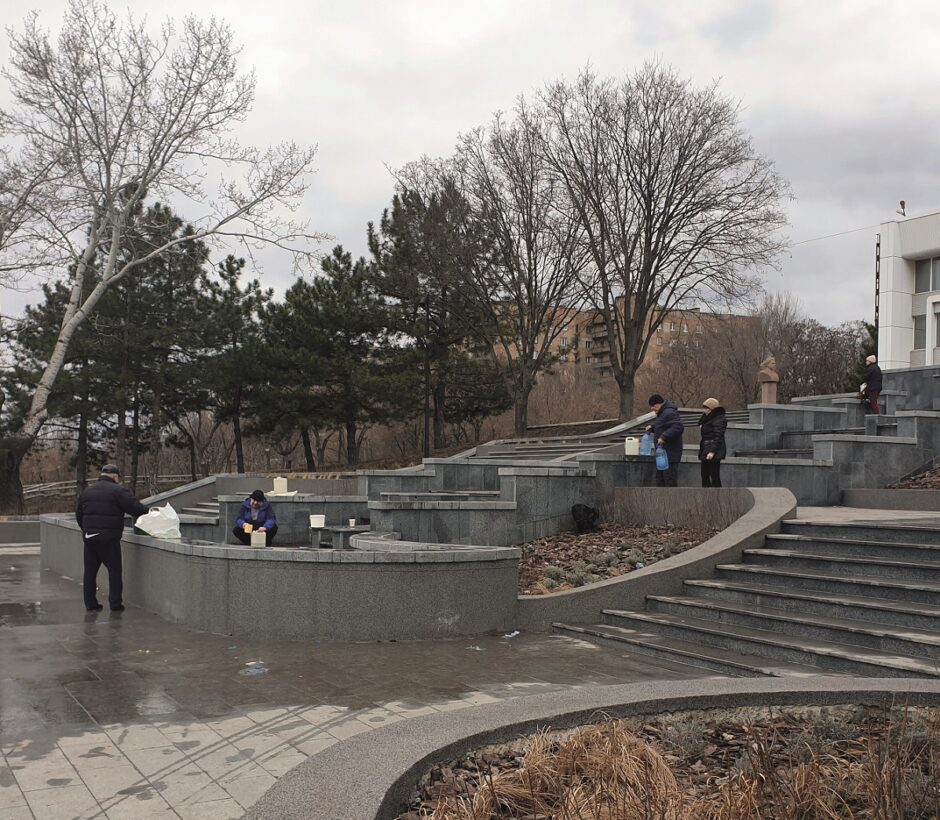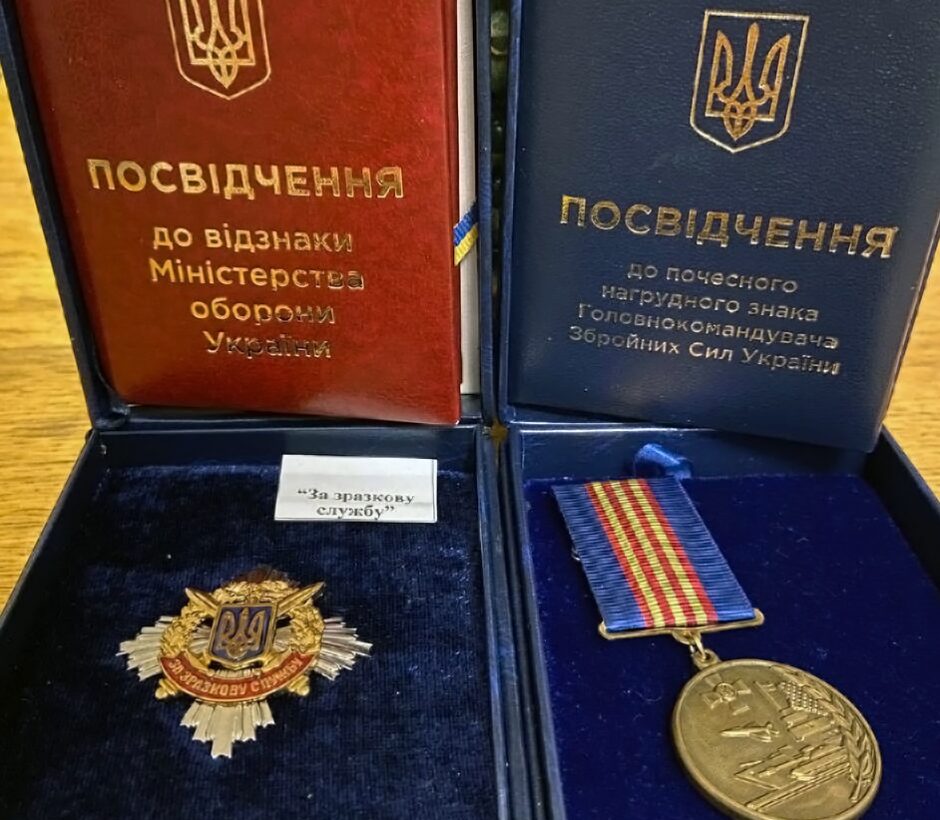Mariupol: Escape

Eventually, we realised that we had to get out of this hell. The cultural center, the Ukrainian house, was on a hill. From there, we saw how everything in the city was bombed. Many apartment buildings were burnt down, sometimes with people still inside. On the 15th of March, we heard that a convoy of cars was leaving the city in the direction of the suburb of Mangush. They hung white flags on their cars to show that they were civilians.
Olena
Caption: From the early days of the blockade, the water supply in the city had stopped. People fetched water from fountains. Photo: Viacheslav Tverdokhlib

When my daughter left the city, she took her husband’s medals and the Ukrainian flag with her. We hid these on our bodies. We didn’t know then what a risk we were taking. We drove through about 20 checkpoints and were searched everywhere by Russian soldiers. It felt like they owned us. At one of the checkpoints, they forced my 16-year-old nephew out of the car. My daughter was driving, and she jumped to the boy’s defence. She said: “He’s a child. Don’t touch him”.
Then 10 orcs* pointed their rifles at her. But she couldn’t hold back her anger. She said, “Our soldiers will kill you”. The Russians wanted to take her to the military police, but thanks to a miracle, everything ended well.
Then we drove through a minefield towards the town of Vasilyevka. A bridge had been blown up and the cars were sliding around in the muck. We saw blown-up cars with dead people. When we got to the other side of the village, we were met by Ukrainian soldiers. We wanted to hug each and everyone of them. We cried for joy.
Olena
*A commonly used Ukrainian term for Russian soldiers.

